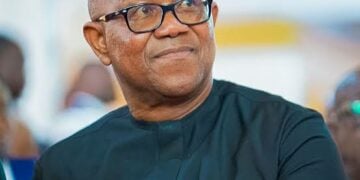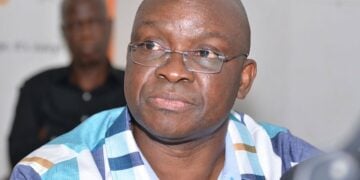The National Senior Secondary Education Commission (NSSEC) has rallied support for gender-sensitive and inclusive learning environments across the country as it convened a two-day national workshop.
The workshop, which began in Abuja yesterday, brought together special education officers from the 36 states and the Federal Capital Territory.
With the theme “Promoting Inclusive, Safe, and Gender-Sensitive Learning Environments for All,” the event is a strategic response to national calls for more equitable and accessible education systems.
In her keynote address at the opening ceremony, the minister of state for Education, Prof. Suwaiba Said Ahmad, emphasised the need for tangible action in implementing Nigeria’s inclusive education and gender policies.
Represented by the deputy director, Science and Technology Department, Federal Ministry of Education, Mr. Kehinde Olu Osinaike, she commended NSSEC for organising the workshop, noting that it aligns with the federal government’s Renewed Hope Agenda, which prioritises inclusive and equitable education for all Nigerian children.
“The theme of this workshop speaks directly to our commitment to building a school system where every learner regardless of gender, disability, or background is welcomed, protected, and empowered to thrive.”
She reiterated that while Nigeria’s National Policy on Inclusive Education and the National Policy on Gender in Education lay important foundations, effective implementation remains key. She urged participants to go beyond policy rhetoric and embrace practical strategies that make inclusivity a lived reality in schools.
“Inclusive education is not just about infrastructure or policy; it is about justice, dignity, and hope. Every learner deserves to be seen, heard, and supported,” she added.
Earlier, in his welcome remarks, NSSEC executive secretary, Dr. Iyela Ajayi, described the workshop as a “pivotal national conversation” and a direct response to the evolving demands of education under the current administration.
“This is not just a professional gathering; it is a moral call to action. We must transform our senior secondary schools into sanctuaries of learning where every child feels valued, safe, and empowered,” he said.
Ajayi noted that the commission is taking practical steps to move from policy to implementation. “We are empowering the frontline officers, the architects of inclusion who directly influence school environments and shape how policies are experienced at the grassroots,” he added.
Over the course of the two-day workshop, participants engaged with expert facilitators on best practices for inclusive planning, gender-responsive leadership, and the integration of protective mechanisms against discrimination and violence in schools.
We’ve got the edge. Get real-time reports, breaking scoops, and exclusive angles delivered straight to your phone. Don’t settle for stale news. Join LEADERSHIP NEWS on WhatsApp for 24/7 updates →
Join Our WhatsApp Channel









